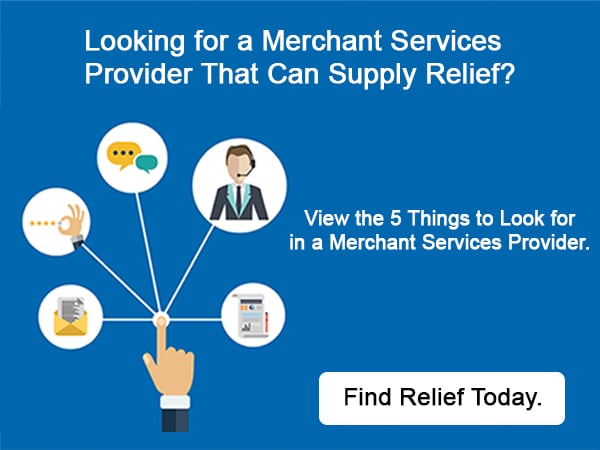By one estimate, chargebacks costs merchants $19.39 billion each year¹. Besides the sheer volume of chargebacks some merchants face, there are a number of obstacles, like unreachable customers, that make fighting a chargeback an uphill battle.
The following two case studies illustrate how different every chargeback scenario can be — from a case of buyer's remorse to simple user error — and how your merchant services provider can help you successfully reverse chargebacks at your business!
Case Study #1: "Megan’s Mopeds"
Situation
One of the businesses that TransNational Payments works with (let’s call them Megan’s Mopeds) sells new and used mopeds. In July 2018, a couple visited their store and purchased two used mopeds with an American Express card. After signing all the paperwork, the customers didn’t take the mopeds with them, but instead asked the merchant to install some extra accessories and replace the brakes, which was all included in the price of the purchase. The merchant completed the work and tried to notify the cardholder when the mopeds were ready for pickup, however, the cardholder never returned the call. Later, the cardholder filed a chargeback claiming they had canceled their order.
Solution
When TransNational Payments stepped in to help the merchant find a solution, we first advised them to reach out to the cardholder again and try to learn more about why they filed a chargeback. They managed to reach the cardholder’s significant other, who said that they were no longer interested in the mopeds. The situation was further complicated by the fact that Megan’s Mopeds had a policy which clearly stated that special orders, like custom-built or modified mopeds, were not eligible for return.
At that point, we asked the merchant to draft a rebuttal letter and provide all the documentation related to the transaction. The key evidence turned out to be the titles to the mopeds, which were signed over to the cardholder during the sale. These documents proved that the mopeds now officially belonged to the couple.
Outcome
American Express agreed with everything TransNational Payments submitted on behalf of the merchant, including the proof that the cardholder never attempted to sell the mopeds back. Megan’s Mopeds won the chargeback and got their money back.
The Bottom Line
In this case, the cardholder likely experienced “buyer’s remorse” and didn’t pay attention to the business’ return policy. As a merchant, you can avoid this type of situation at your business by clearly displaying and explaining your return policy, keeping up with transaction documentation and maintaining open lines of communication with your customers.
Deal with your next chargeback effectively. Read The Ultimate Guide to Fighting Chargebacks for tips.
Case Study #2: "Tom’s Trailers"
Situation
Another chargeback situation that TransNational Payments helped a merchant resolve involved a dealership (we’ll call it Tom’s Trailers) that sells flatbed and container work trailers. The trailers have different ratings and load/weight capacities, so it’s crucial for customers to check that specifications match their needs.
One day, a customer visited the merchant’s location, purchased a trailer and left the dealership with it. But, a few months later, the customer filed a chargeback claiming that the trailer was defective.
Solution
At the advice of TransNational Payments, Tom’s Trailers contacted the cardholder to find out what was wrong and check whether the damage could be fixed through a manufacturer’s warranty. The cardholder stated that he couldn’t use the trailer because the axel was bent. He refused to bring it in to allow the merchant to assess the damage and find a solution.
The owner of Tom’s Trailers traveled an hour away to the cardholder’s location to look at the trailer and, at the cardholder’s request, brought it back to the dealership. Upon closer inspection, the merchant discovered that the axel could have bent in that manner only if the trailer was loaded above its listed weight capacity.
Since the cardholder stopped all communication after this revelation, TransNational Payments challenged the dispute on the merchant’s behalf and provided the sales documentation that listed the trailer’s rating along with its weight capacity. We also obtained a written statement from the manufacturer, who had their representative assess the trailer and confirm that the damage wasn’t caused by a factory defect.
Outcome
The merchant won their dispute, but the cardholder filed a second chargeback in which they claimed to no longer have the trailer. TransNational Payments then pursued the case to arbitration and supplied documentation showing that the cardholder refused to pay for any repairs caused by misuse and failed to pick up the trailer or arrange for it to be transported back.
The arbitration took close to a year, but in the end the board sided with the merchant and Tom’s Trailers got their money back.
The Bottom Line
Unfortunately, some cardholders blame merchants for their own mistakes — sometimes more than once. To prevent similar issues at your businesses, take a moment to clarify the product’s specifications to the customer, especially if it’s a major purchase, and provide them with an easy way to reach you in case any problems arise.
Don't get caught unprepared for the next chargeback. Download The Ultimate Guide to Fighting Chargebacks.
¹ Javelin Strategy & Research (2018, October). Navigating the Chargeback Triangle: How Collaboration Can Reduce Costs and Save Customer Relationships.










 Facebook
Facebook Twitter
Twitter LinkedIn
LinkedIn Youtube
Youtube Glassdoor
Glassdoor